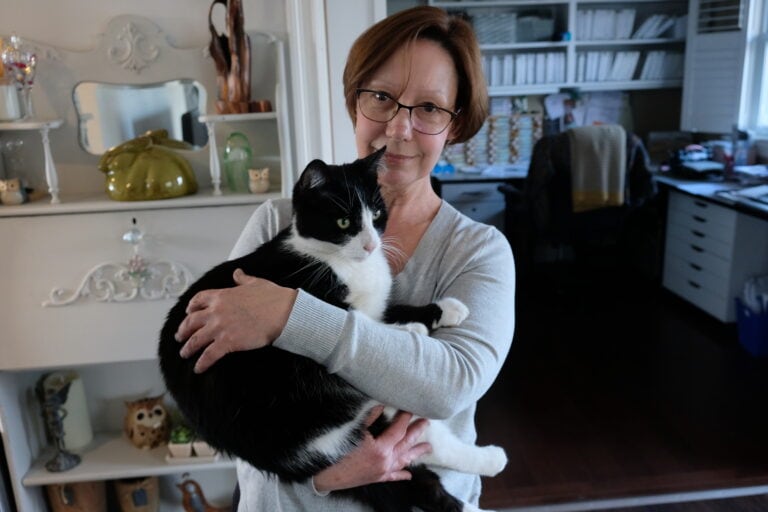This is the fourth in a series of in-depth stories about how tourism is changing worldwide and how some destinations are dealing with concerns about overtourism, unprecedented growth in short-term rentals, skyrocketing housing prices and, ultimately, how these factors can affect communities.
The transfer of long-term housing stock to the short-term rental market is exacerbating housing crises all over the world but can be addressed by municipalities focusing on primary residence rentals, such as bed and breakfasts, a housing advocate says.
Fairbnb spokesperson Thorben Wieditz says focusing on primary residence home-sharing would prevent the growth of so-called "ghost hotels" and ensure communities do not get hollowed out by a shift away from long-term housing.
Wieditz said Fairbnb Co-op, a workers' co-operative alternative to Airbnb, supports a permit system where the applicant has to prove the home they want to rent is their primary residence.
Listing an entire home should be allowed but for no more than 90 days per year, which accounts for most weekends, Wieditz said in an interview.
In Toronto, where Fairbnb Co-op plans to launch next spring, since June 2018 short-term rentals only have been allowed in a primary residence, which cannot be entirely rented out for any more than 180 days per year.
Rental operators also must register with the city and collect a four per cent municipal accommodation tax.
This is essential because it ensures people do not sell their long-term residence to someone who is looking to run a commercial ghost hotel out of it, Wieditz said.
Nathan Rotman, a public policy representative for Airbnb, said he disagrees with the claim that Airbnb and short-term rentals are eating up long-term housing stock.
He cited Toronto’s increasing housing costs as an example, saying after the city's new regulations on short-term rentals came into effect housing prices didn’t go down.
“Rents are still going up,” Rotman said.
In his 2019 study “The Economic Costs and Benefits of Airbnb,” Economic Policy Institute director of research Josh Bivens cited the increase in housing prices and rent related to the proliferation of short-term rentals as about 0.4 per cent per 12 new Airbnb units in a census tract.
Wieditz argued that reducing the availability of permanent ghost hotels by implementing a primary residence requirement would benefit hotels, which pay commercial tax, operate according to zoning laws and have management staff who control guests.
Fairbnb charges a booking fee of 15 per cent. Of that amount, half will go to the co-op to help it grow and the other half will be put into the Kensington Market Community Land Trust. As the platform spreads to other cities, Wieditz said Fairbnb will look to support local affordable housing programs.
The remaining 85 per cent of revenue is kept entirely by the property owner.
Wieditz stressed that Fairbnb is a co-operative, “meaning it is owned and operated by the people that participate in it.”
“It is designed to leave money in the community and that is the distinction compared to Silicon Valley-based platforms that operate around the world, extract money from a neighbourhood and then channel it, in Airbnb’s case, to some 40 subsidiaries to avoid all kinds of tax payments.”
By having community members dictate the platform, Wieditz hopes Fairbnb provides a supportive alternative to platforms like Airbnb.
In suggesting potential solutions for the short-term rental problem, Bivens echoes some of the same sentiments as Wieditz.
“The spread of Airbnb seems at its core to be a shift of potential housing supply from the long-term residential housing market to the market for short-term accommodations,” Bivens writes.
“The proper way to improve local zoning laws is not to simply let well-funded corporations ignore the status quo and do what they want.”
Bivens argues municipalities need to hold true to their zoning laws, such as not allowing commercial businesses like unhosted short-term rentals on residentially zoned properties.
For planning lawyer Leo Longo of Aird & Berlis LLP in Toronto, the possible solutions should be tailored to the character of individual municipalities like Niagara-on-the-Lake.
Longo worked on the rules for short-term accommodations in Blue Mountain, where rentals in certain residentially zoned areas are a permitted use.
“Blue Mountain is a tourist attraction, so what they did is they recognized that providing a variety of accommodation alternatives to visitors is a good thing,” Longo, an expert in municipal law, said in an interview.
“It’s not that they were opposed to (short-term accommodations), they just wanted to make sure that they were in areas where the land use would not be incompatible with surrounding properties.”
Longo said he thinks that is the best way for municipalities to do it.
Oro-Medonte Mayor Harry Hughes doesn't agree.
Hughes said his staff looked at Blue Mountain specifically when drafting the township's regulations on short-term accommodations last year.
“What we’ve seen in Blue Mountain is, that doesn't work,” Hughes said regarding allowing unhosted rentals on limited residential properties.
Township staff found residents who happened to own property on residentially zoned land where short-term rentals were allowed were selling their properties to people who only wanted to operate them as a rental, the mayor said.
Oro-Medonte implemented a total ban on short-term accommodations on residentially zoned properties and Hughes stands by that decision.
Hosted rentals like bed and breakfasts still have to get a zoning change to operate. Old bed and breakfasts in Oro-Medonte will be grandfathered in since they precede the bylaw, Hughes said.
“Some people, and it will be forevermore, will try to utilize anything a township does to undermine council and staff,” Hughes said.
Representatives of the short-term rental businesses in Oro-Medonte are challenging the town’s decision at the Ontario Land Tribunal, but Hughes doesn’t see why unhosted short-term rentals would ever be declared as non-commercial operations.
“What people need to understand is it’s a long road and they need patience when you’re doing things that will not just be a temporary solution,” he said.
Overall, it seems that economists support Wieditz’s approach to short-term rentals, that is, enforcing an owner-occupancy mandate for rentals to get licensed in order to preserve long-term housing stock and promote community interests.
Municipalities “should seek to limit the reallocation of housing stock from the long-term rentals to short-term rentals without discouraging the use of home-sharing by owner-occupiers,” write Kyle Barron, Davide Prosperio and Edward Kung in their 2017 study "The Effect of Home Sharing on Housing Prices and Rent: Evidence from Airbnb."
“One regulatory approach could be to only levy occupancy tax on home sharers who rent the entire home for an extended period of time or to require proof of owner-occupancy.”



.jpg)







